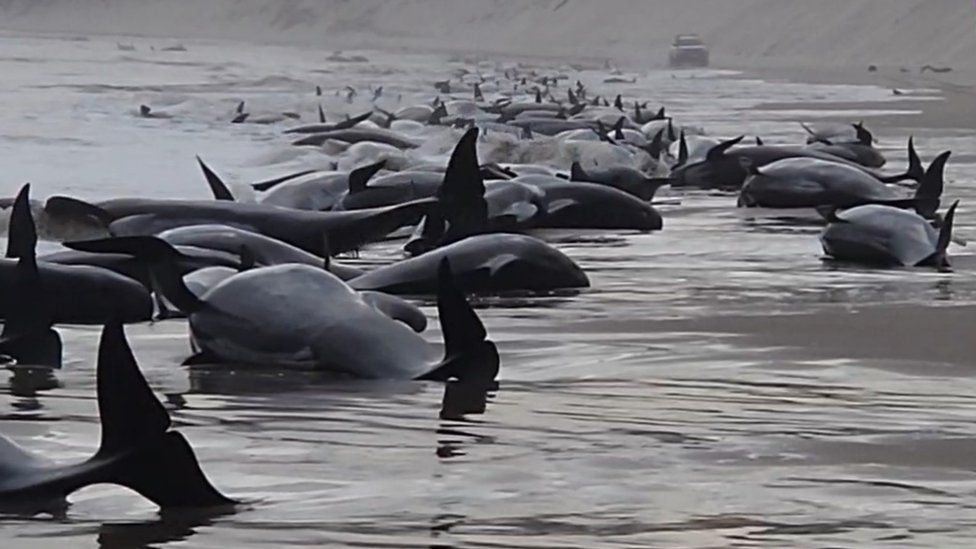ARTICLE AD BOX
By Tiffanie Turnbull
BBC News, Sydney
 Image source, Huon Aquaculture
Image source, Huon Aquaculture
Tasmanian officials said half of the whales still appeared to be alive
More than 200 whales have been found stranded on a remote beach on the west coast of Tasmania, Australia.
Half of the pod, thought to be pilot whales, are believed to be still alive. Rescuers are being sent to the area.
It's unclear what caused the whales to beach on a sandflat at the entrance to Macquarie Harbour, the same remote location where Australia's worst stranding occurred two years ago.
It comes a day after a separate mass stranding in northern Tasmania.
The incident on Tuesday saw 14 young sperm whales found dead on King Island, in the Bass Strait.
Experts were planning a rescue of the 230 whales discovered on Wednesday but the operation would be "complex" due to the location, Tasmania's Department of Natural Resources and Environment said in a statement.
"It appears about half of the animals are alive."
Macquarie Harbour is a large, shallow inlet in a rural area. More of the whales are expected to die overnight.
Locals have been covering the stranded whales with blankets and pouring buckets of water over them to try to keep them alive.
Image source, Department of Natural Resources and Environment
Image caption,An aerial view of the whales stranded on Tasmania's west coast
The state's environment department said marine conservation experts were travelling to the scene and would try to refloat those whales still healthy enough to survive.
Pilot whales are highly social mammals and are well known for stranding in groups because they travel in large, close-knit communities which rely on constant communication.
In September 2020, a huge rescue operation was launched when almost 500 pilot whales became stranded in the same harbour.
More than 380 of the pilot whales died, but about 100 survived thanks to rescuers.
Wildlife scientist Vanessa Pirotta told the BBC the similarities between the stranding and the last one - same species, same location, same time of year - are "unusual" and concerning.
The whales may have "misnavigated", followed a sick or disoriented leader, or been startled into shallower waters, she said.
Climate change could have an impact too - changes in the environment, water temperature, or prey habitats could throw the whales off.
But the reasons behind whale strandings remain a "mystery", she says, as does why Tasmania sees so many of them.
There's lots of marine life in the area - more animals could mean more incidents - and there are also a lot of currents intersecting with the land.
But the "giant island" itself could just be a navigational hazard for animals that use echolocation, she says.
"You're going from essentially open waters and then there's land all of a sudden."
You may also be interested in:
How to rescue a stranded whale

 2 years ago
19
2 years ago
19








 English (US) ·
English (US) ·